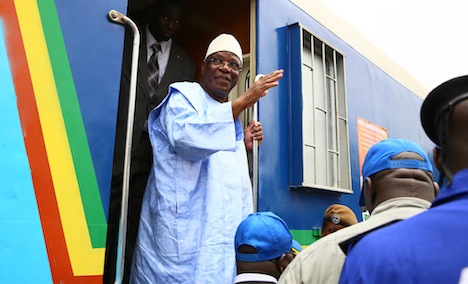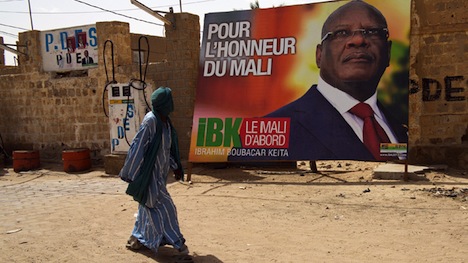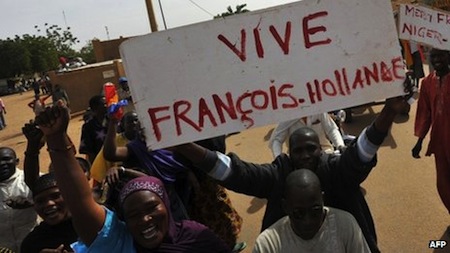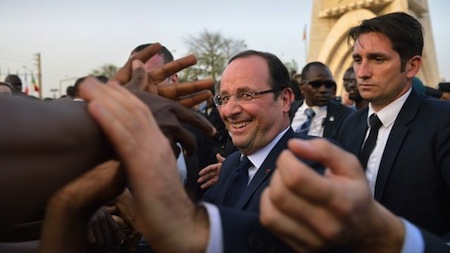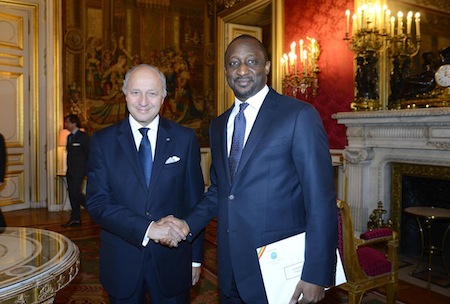
With 20 airstrikes on Sunday in the de facto Islamic State/Saesh capital of Raqqa, French president François Hollande made it very clear that he would stay true to his word and launch a ‘merciless war’ against the terrorist camps in Syria controlled by IS/Daesh. ![]()
![]()
![]()
![]()
That may seem like a tall order, especially given the geopolitical conundrums of Syria’s civil war. Russia is also bombing Raqqa and other rebel strongholds, with the explicit goal of boosting Syrian president Bashar al-Assad. France, meanwhile, opposes Assad, and Hollande nearly launched airstrikes in 2013 against Assad. The United States, along with France and the United Kingdom, have generally argued that Assad must leave power, and the United States once looked to boost anti-Assad Sunni rebels, some of whom are now allied with IS/Daesh. Now, however, US special forces are on the ground in Syria working with Kurdish peshmerga forces to pressure Raqqa as well. For what it’s worth, Turkey is also boosting the US effort with airstrikes on IS/Daesh, but Turkish forces have also been attacking Kurdish militants in southeast Turkey.
And so on and so on. Last Friday’s attacks on Paris may have simplified the French objective in the region, but it doesn’t make it strategically less messier. Hollande has now made it clear that his goal is to destroy IS/Daesh, not simply to contain it. That makes him, for now, far more hawkish on Syria than either US president Barack Obama or UK prime minister David Cameron. It’s worth remembering that Hollande played a crucial role in bringing Berlin and Athens together for a last-minute bailout deal at the nadir of Greece’s eurozone crisis in July.
The Syrian calculus may also be changing for Obama and Cameron, though. Obama spent nearly a half-hour conferring with Russian president Vladimir Putin over the weekend at the G-20 summit in Turkey, and Hollande is set to meet Obama in person in Washington on November 24, followed by a visit with Putin in Moscow two days later.
An increasingly hawkish France in the Sarkozy-Hollande era
If there’s anyone in world politics today, however, whose record of eliminating jihadist threats and restoring peace in the developing world is decent, it’s Hollande — after at least partially successful operations in Mali and in the Central African Republic.
Throughout most of the world (including France), Hollande is an unpopular and ineffective figure who has neither stood up to German chancellor Angela Merkel’s ‘austerity,’ nor enacted reforms to make the French economy more effective nor lowered France’s persistent unemployment rate. That’s, at least, when his personal love life isn’t making headlines.
But Hollande has developed an impressive record when it comes to engaging and defeating radical jihadists in former French colonies– and in prolonging a new trend of aggressive foreign policy.
His predecessor, conservative Nicolas Sarkozy, took office in 2007 with the explicit goal of closer security ties with the United States and the United Kingdom, embracing the once toxic mantle of ‘Atlanticist.’ In 2009, he ended France’s four-decade-long rift with NATO, fully integrating France into NATO’s security regime, and he embraced a muscular, hawkish foreign policy — on Libya and elsewhere.
Perhaps to the surprise of some of the more dovish members of Hollande’s Parti socialiste (PS, Socialist Party), he has embraced the new French assertiveness on the global stage. Even more surprisingly, it’s Laurent Fabius, a long-time Socialist official, who has carried out Hollande’s muscular foreign policy as France’s foreign minister.
Fabius, who served as France’s youngest prime minister in the 1980s under François Mitterrand, bucked his party in 2005 in advocating a non vote against a European constitution. Nevertheless, he comes from the left wing of the party, and he’s run (unsuccessfully) for the party’s presidential nomination.
Mali — restoring a government in the Sahel
In 2012, in northern Mali, the Tuaregs, nomadic Muslims long resentful of the southern elite, were on the verge of breaking away to form their own northern state. The pressure on Mali’s government culminated in a military coup, deposing Mali’s democratically elected president Amadou Toumani Touré and thereby plunging Mali into even greater chaos. By the end of the year, a relatively stable democratic country had become a magnet for international jihadists, including newly-armed Libyan rebels and al-Qaeda in the Islamic Maghreb (AQIM). Together, the radicals had overtaken both the Malian army and the local Tuareg forces to create a radical Islamist pocket across northern Mali, introducing harsh sharia law and increasingly threatening the southern capital, Bamako.
* * * * *
RELATED: Despite fears, Mali’s rushed presidential election seems like a success — for now
* * * * *
Invited by the new government, Hollande sent a 4,000-person force to Mali in January 2013. Within days, French troops controlled the northern city of Timbuktu and, By April, the international jihadist threat in Mali was significantly reduced, and French troops began withdrawing from Mali, as a regional African force took control over regional security. By August 2013, the country held its delayed presidential election, voting Ibrahim Boubakar Keïta into power and restoring Mali back onto a democratic path, tasked with tough negotiations with Tuareg rebels.
A more wide-ranging force, together with national African troops, remained behind to ensure that the international fighters in Mali didn’t stick around to cause mayhem in other countries in the Sahel.
While IBK, as he’s known in Mali, has not been incredibly successful in pacifying the Tuareg-led National Movement for the Liberation of Azawad (MNLA), who continue to clash with Malian forces and are pushing forward to create their own sovereign state of Azawad. That’s not the best potential outcome for Mali, necessarily, but it did prevent Mali — or the wide Sahel — from becoming the kind of powerless vacuum where international jihadist rule can thrive, like in eastern Syria, western Iraq and present-day Libya. Moreover, even as Mali struggles to consolidate a united country, it can do so without having to wage a war against an IS-style caliphate within its own borders. Pushing aside hand-wringing about the perception of françafrique, the notion that France continues to play a role in its former colonies to perpetuate its own self-interested political and economic control, Hollande’s targeted and narrowly defined mission made Europe and the Sahel safer as a result.
CAR — giving peace a fresh start
A year later, the Central African Republic, another former French colony, was devolving into chaos.
François Bozizé, the CAR’s president since taking power in a 2003 coup, was himself ousted by the Séléka alliance that first took control of the country’s north in November 2012, then took the capital, Bangui, in March 2013, bringing Séléka rebel leader Michel Djotodia to power.
Yet Djotodia, even after dissolving his militia, failed to control the increasingly intense fighting between Christians-dominated ‘anti-balaka’ militia and the Muslim dominated Séléka. With the country descending back into civil war, the UN Security Council introduced a peacekeeping force, and Hollande sent 1,600 French troops to help disarm militias, after refusing an initial request from Bozizé earlier in 2013 to stabilize his regime.
* * * * *
RELATED: Does Djotodia’s resignation matter in
Central African Republic?
* * * * *
Isolated from the elites of the Bozizé regime and increasingly from other rebel leaders in his own Séléka alliance, Djotodia stepped down in early 2014, and the country eventually appointed an interim leader, Catherine Samba-Panza.
The French peacekeeping effort hasn’t pacified the CAR enough to allow for elections that have now been delayed numerous times. But it may helped prevent wider violence, or even mass genocide, in central Africa. Again, French forces have kept the CAR from becoming a fully failed state and a vacuum for jihadist forces that might delight at forming a base in central Africa.
Syria — a chance for a genuine political settlement
Neither Mali nor the Central African Republic today are what you might call model countries today, not even by the standards of sub-Saharan Africa. Mali’s democratic restoration remains fragile and the country is still divided on tenuous north-south lines. The Central African Republic still hasn’t held postwar elections, and it could crumble back into violence at any moment.
But by the standards of Western intervention over the last 15 years, it’s hard to think of any greater successes. Certainly not Iraq or Afghanistan after the end of US-led intervention there, and certainly not Libya, which is barely functioning today after Sarkozy and Cameron led a US-backed charge to dislodge Libyan strongman Muammar Qaddafi. US drone strikes in Somalia and Yemen have done little, either, to make those countries safer. Hollande’s record may not be perfect, but there’s at least some cause for hope.
It’s also true that Syria is different and, in many ways, from sub-Saharan Africa, and will be a much more difficult challenge for Hollande or any international coalition to pacify. For a country that’s suffered four years of civil war and brutality on all sides, Syrians may not welcome yet another international player to the mix. Intervention from the United States, Russia, Turkey and others only seems to make things worse for everyday Syrians, bringing just fleeting gains to the pro-Assad or anti-Assad forces of the day.
Hollande, like Obama and Putin, must realize that any military victory in pushing back IS/Daesh will ultimately be a Pyrrhic victory without the kind of political settlement that brings an end to Syria’s hostilities, even if that means pushing Assad from power.
